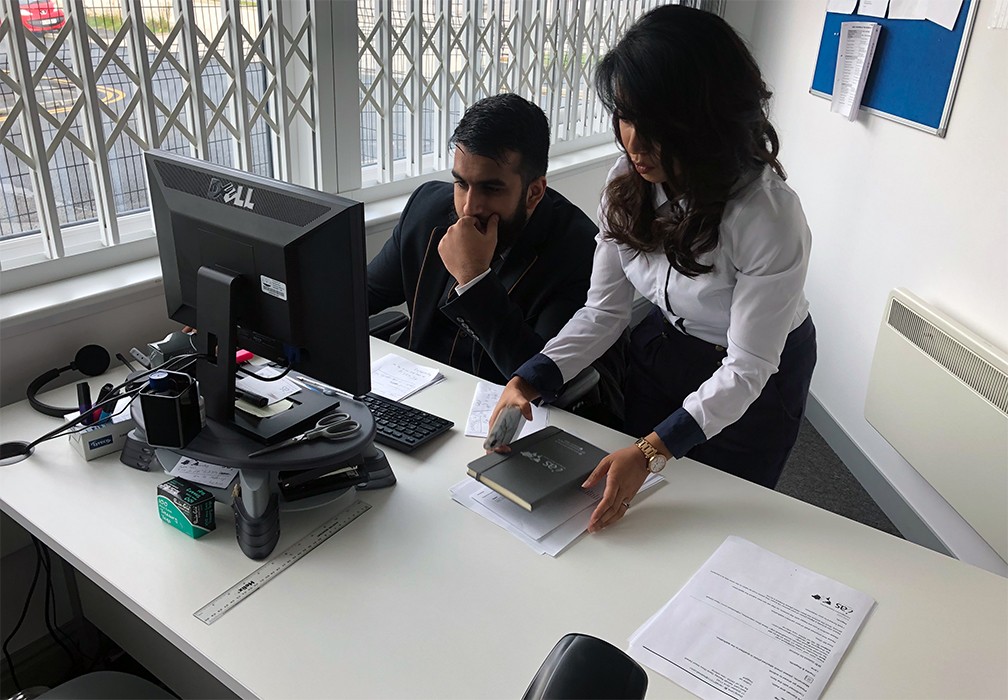Spain Dual Citizenship
Becoming a Spanish citizen is an exciting prospect for many foreign nationals who wish to become a citizen of both Spain and the wider European Union.
The Spanish government has strict rules and criteria around who can and cannot obtain dual citizenship in Spain. For support with navigating this complicated process, contact an expert legal advisor at Total Law today on +44 (0) 333 305 9375, or get in touch online. We are here to help.
What is Spain Dual Citizenship?
Dual citizenship, also known as dual nationality, is a legal status in which a person is recognised by two nations as an official citizen of that country. This means that they can work, live, and vote in both states, and are subject to the laws of both lands.
Different countries have different dual citizenship laws. Spanish nationality law is reasonably restrictive for foreign nationals to obtain Spanish citizenship, in that they do not allow foreign nationals who apply for Spanish nationality to maintain their citizenship in their country of origin, and therefore must renounce their citizen status in, for example the UK, in favour of becoming a Spanish national.
Does Spain Allow Dual Citizenship with UK?
Overview
Spanish dual citizenship is possible only for citizens of certain countries. The Spanish civil code overall rejects dual nationality for foreign citizens who wish to obtain Spanish dual citizenship, because it only allows dual citizenship in the following circumstances:
- Spanish citizens by birth can acquire citizenship in a second country
- People from Spanish speaking countries or who have Spanish or Portuguese origins due to the historical ties of the nation with Spain or Portugal: You will likely be eligible if you come from:
- A Latin American Country
- A South American Country
- An Iberian country.
Spanish Citizens by Birth
Spanish nationals by birth are the Spanish population who were born in the country of Spain or one of its territories, most often to a Spanish mother and father.
Spanish law accepts Spanish citizens seeking dual nationality in another nation, and they will not be required to lose Spanish nationality as a result. Spanish nationals can choose to renounce their Spanish citizenship in favour of the other country if they so choose, but this would overall be unnecessary unless the secondary country they are applying for citizenship in does not have a dual citizenship agreement.
For example, a person of Spanish origins can apply to become a citizen of the United Kingdom, and will be able to hold dual citizenship in both Spain and the UK so long as they make a declaration to the Spanish authorities that they wish to maintain their Spanish citizenship.
However, British-born nationals who wish to acquire Spanish nationality are not able to acquire dual citizenship in Spain, but would instead have to be willing to renounce their British citizenship status in favour of becoming a Spanish citizen. This must be viewed as a permanent decision, because if an individual chooses this route, they will very unlikely be able to reacquire citizenship in the UK or other country of origin after renouncing citizenship status.
If a British national becomes a Spanish citizen, and then has children that are born in Spain, the child will be eligible for dual British and Spanish citizenship as they would then meet the criteria of being Spanish-born.

Citizens of Ibero-American Countries
Due to the historical Spanish Empire, Spain maintains close diplomatic and political ties to many former colonies and territories of Spain located most notably in the Iberian Peninsula, Latin America and South America.
As a result, Spain allows foreign nationals from these countries to gain double citizenship in Spain.
Citizens of the following countries are allowed to maintain their citizenship from their country of origin and also acquire Spanish citizenship:
Iberian countries:
- Andorra
- France
- Portugal.
Latin American countries:
- Costa Rica
- Cuba
- Dominican Republic
- Guatemala
- Honduras
- Mexico
- Nicaragua
- Panama
- Puerto Rico
- El Salvador.
South American Countries:
- Argentina
- Bolivia
- Brazil
- Chile
- Colombia
- Equatorial Guinea
- Ecuador
- Paraguay
- Peru
- Uruguay
- Venezuela.
South East Asia:
- Philippines.
Can I Get Dual Citizenship as a Sephardic Jew?
In 2015, a specific Spanish law was passed that opened up applications for Spanish citizenship by descent to individuals from Sephardic Jewish backgrounds, and in turn allowing double citizenship agreements with their country of origin.
The decision to grant Spanish citizenship to those with Sephardic Jewish Spanish ancestry was rooted in Spain’s historical connection with this community, and is aimed at addressing the injustices caused by the Alhambra Decree of 1492, which expelled Sephardic Jews from the country. This move symbolises Spain’s commitment to repairing the wrongs of historical Spanish governance and offering reconciliation to the descendants of those exiled.
The dual citizenship application process for Sephardic Jews included having to provide proof of Sephardic Ancestry, which then needs to be confirmed by the Spanish government. A language proficiency exam must also have been taken (DELE 2) and the CCSE test exploring the applicant’s understanding of Spanish culture and heritage.
Unfortunately, being able to gain citizenship or become a dual citizen through Sephardic Jewish heritage alone is no longer an available route to holding dual citizenship in Spain. However, Sephardic Jews may apply for citizenship through the usual routes.
How Do I Get Dual Citizenship in Spain?
If you are a UK national applying for citizenship in Spain, then you will not be able to obtain dual citizenship.
However, if you are applying from an Ibero American country, you will need to choose which route to double citizenship is most suitable for you.
There are four main options to citizenship in Spain.
Citizenship by Option (Under 18s)
Citizenship by option is a citizenship route for children and minors under 20 years old.
Citizenship by option is available to young people whose parents gained Spanish residency whilst the young person was under 20 years old. This route includes those who are adopted or under legal guardianship of the Spanish citizens.
In order to be eligible, the following must apply:
- The Spanish parents submitted the minor’s birth certificate when they applied for a residence permit
- The minor resides in Spain for 2 years before they apply for citizenship
- The Spanish parents were born in Spain.
The Spanish parents do not need to have been living in Spain for a significant time, as they are already citizens by birth; however, the family/child must have lived in the country for 2 years before the minor is eligible to apply for Spanish citizenship.
Spanish Citizenship by Descent
Spanish citizenship by descent is a citizenship route available to those who can prove direct family lineage in Spain (including those adopted by Spaniards). Since 2022, the Spanish government has expanded its legislation for citizenship by descent routes to support those who wish to reclaim their Spanish roots.
- Children of Historical Memory Nationals: These are the children of parents who gained Spanish citizenship through Law 52/007 (Law of Historical Memory) – these are individuals who were previously ineligible for citizenship as they were above 18 and were restricted at the initial time of application.
- Descendants of Exiled Spaniards: These are the children or grandchildren of Spanish exiles who were banished from Spain during the Franco Dictatorship and Spanish civil war due to persecution based on their political, religious, or ideological views, or due to their sexual orientation.
- Grandchildren of Spanish Women: These are grandchildren of a Spanish grandmother who was born in Spain before the 1978 Constitution, and lost her citizenship due to marrying a non-Spanish man.
Spanish Citizenship by Marriage
Spanish Citizenship by marriage is considered the quickest route to Spanish citizenship. Please know that legal marriages are the only eligible type of partnership – civil partnerships do not qualify for a citizenship pathway.
To be eligible for citizenship through marriage, the applicant must:
- Be legally married to someone with Spanish nationality
- Register their marriage officially at the Spanish civil registry – this is done automatically if your marriage takes place in Spain, but if you are married abroad you must register your marriage when you arrive in Spain
- Reside in Spain for at least one year with your Spanish spouse – you can prove this by submitting your visa status, residence permit, and/or rental agreement and utility bills.
Citizenship by Residency
For those who do not have a Spanish parent or Spanish ancestry, and are not married to a Spaniard, the best way to obtain Spanish citizenship or to obtain dual nationality (if applicable) is with the citizenship through residency option.
To become a citizen through residency, the Spanish authorities require a minimum of 10 years of legal residence in Spanish territories. You will be required to prove that during the decade spent residing in Spain, you have spent most of your time in the country, with no more than 3 consecutive months spent outside of Spain at any given point in the 10 year period.
Time spent living in the country on a Spain visa for tourists (Schengen visa) or student visa will not be counted as part of that 10 years.

How to Apply for Spanish Dual Citizenship?
To Apply for Spanish nationality in order to acquire dual citizenship, you will need to ensure you have the following documents:
- A valid passport
- Foreign Identity Number (NIE)
- Your birth certificate
- Proof of legal residence in Spain
- Criminal record certificate proving you have a clean criminal record within the past 5 years
- Health insurance coverage
- Marriage or divorce certificates, or birth certificates of relatives to prove your ancestry is of Spanish origin
- Proof of passing the DELE 2 Spanish language test
- Proof of passing the CCSE cultural knowledge exam
- Any other documents related to your specific route to citizenship that may support your case.
Applying for citizenship can sometimes be a complicated process, particularly if you are unsure whether or not you will have to renounce your citizenship and are not able to obtain dual nationality. We can help. Contact Total Law online or speak to one of our team today at +44 (0) 333 305 9375.
How Much Does it Cost to Obtain Spanish Dual Nationality?
The cost of the dual citizenship application process will depend on your circumstances, and which citizenship route you take.
Typically, you can anticipate paying €60-100 for the application fee itself. Additional fees may apply for obtaining certificates, translating documents, or travelling to your nearest Spanish consulate.

How Long Will My Application Take?
In general, a dual citizenship application will take between 1-3 years to process, and therefore you must consider this a slow process and not make any arrangements that would be based around being a Spanish citizen until you have received a response from the Spanish embassy.

How Can Total Law Help?
Gaining citizenship in Spain is an exciting prospect for many foreign nationals who wish to start a new journey as a Spanish national. Gaining Spanish citizenship has many benefits, such as being able to live, work, and move freely across European Union countries, be eligible for a Spanish passport which is an excellent passport for visa-free movement, and to be able to live a high quality life amongst the gorgeous landscapes, culture and society in Spain.
However, becoming a citizen in Spain means that, for UK nationals as well as most other countries around the world, you will have to renounce your citizenship in your country of origin. This is a big decision, not only for the immigration, political or residential implications, but can also take a toll on a sense of personal identity. It can be incredibly difficult to make this decision, and many are unsure whether obtaining Spanish citizenship is the right route for them.
That is why Total Law is here. We have a team of expert immigration lawyers who understand in great depth the challenges and implications of renouncing citizenship. Our team can advise you on the best immigration route for you to take moving forward. To chat to a team member today, give us a call on +44 (0) 333 305 9375, or get in touch online. We are here to support you.
Advice Package
Comprehensive immigration advice tailored to your circumstances and goals.
Application Package
Designed to make your visa application as smooth and stress-free as possible.
Fast Track Package
Premium application service that ensures your visa application is submitted to meet your deadline.
Appeal Package
Ensure you have the greatest chance of a successful appeal. We will represent you in any case.

The Advice Package
During this untimed Advice Session with our professional immigration lawyers in London, you will receive our comprehensive advice, completely tailored to your needs and your situation.

The Application Package
With our Application Package, your dedicated immigration lawyer will advise you on your application process and eligibility. Your caseworker will then complete and submit your forms to the Home Office on your behalf.

The Fast Track Package
Our Fast-Track Application Package is a premium service for those who need to submit their application in time with their deadlines. Your case will become a top priority for our lawyers and you will benefit from our highest-quality services.

The Appeal Package
By choosing our Appeal Package, you can rely on our lawyers’ legal knowledge and experience to ensure you have the highest chance of a successful appeal. We will also fully represent you in any hearings/tribunals.
Related pages for your continued reading.
FAQs
It depends. The Spanish government does not allow non-EU and non-Ibero American country citizens to hold dual citizenship in Spain.
This means that if you are a UK national wishing to become a Spanish citizen you will need to renounce your British citizenship.
The UK allows for dual citizenship in Spain and Britain. Therefore, if you are a Spanish national who wants dual citizenship in the UK (or any other non-EU, non- Ibero American country), then you may be eligible for dual nationality – please note some countries, as with Spain, have strict dual nationality law, and do not allow you to continue holding your original citizenship when you apply for citizenship in their country.
Yes, you will need to submit proof of residence in Spain before applying for double nationality. The minimum amount of time you will need to have lived in Spain is 1 year – this is if you are acquiring Spanish nationality through marriage. In general, most people need to have lived in Spain for at least 10 consecutive years on a valid Spain visa, except for the Citizenship by Option route, where the minor must live in Spain for 2 years before applying for citizenship.

